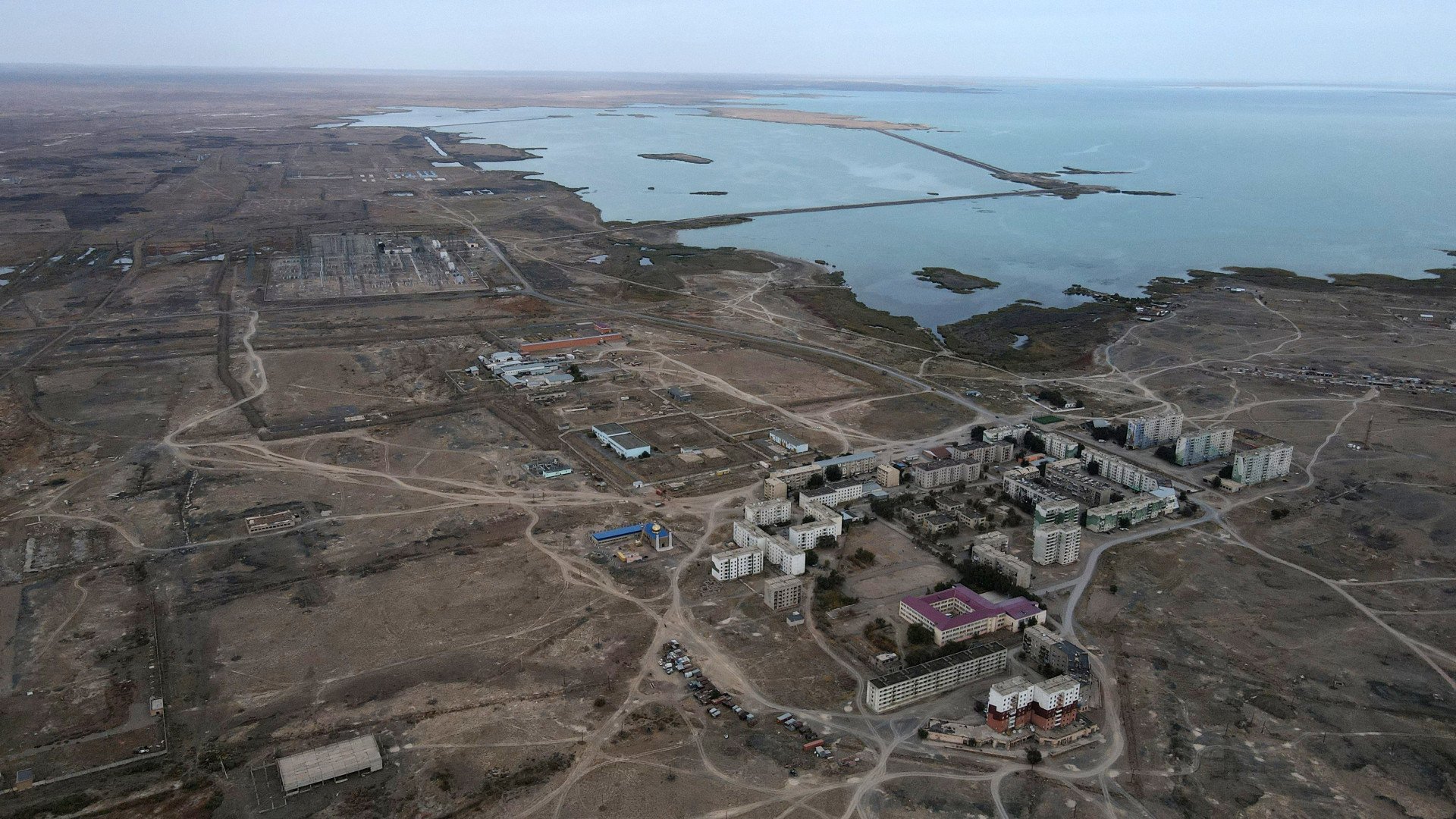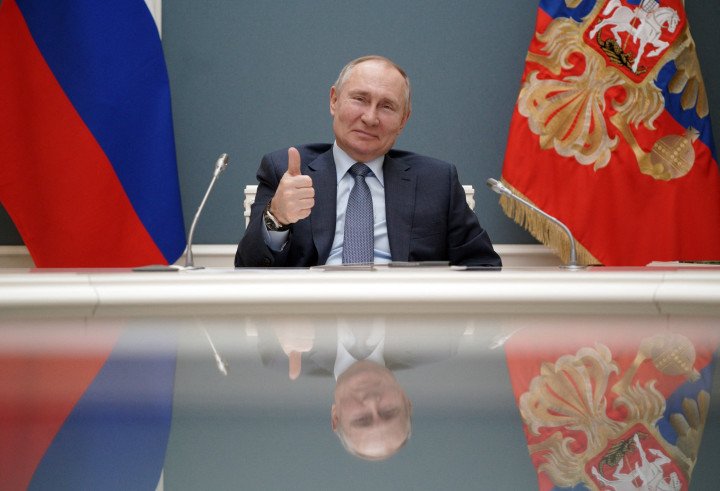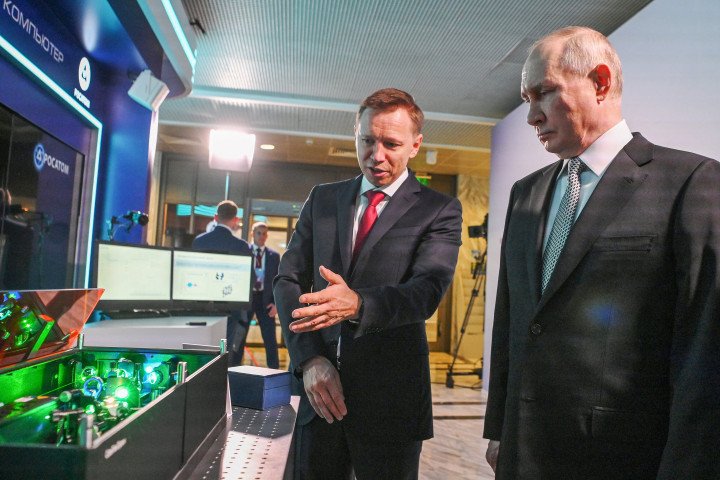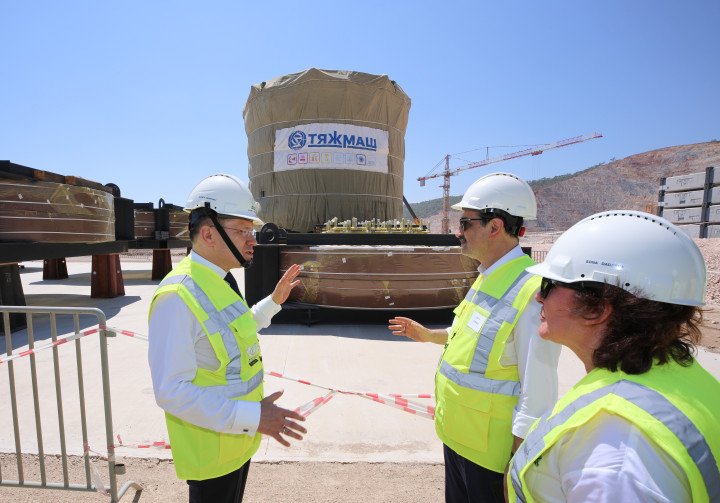- Category
- Business
With Rosatom Leading Bids, Kazakhstan’s First Nuclear Power Plant May Tie It to Russia for Decades

Russia’s nuclear energy sector remains unsanctioned, but Kazakhstan’s upcoming nuclear plant could prompt a serious reassessment.
Rosatom, Russia’s state-owned nuclear giant, pulls in an estimated $10 to $20 billion in foreign revenue annually. While that’s smaller than oil and gas profits, it’s still a crucial stream of Russia’s foreign income. Unlike oil, which can be rerouted or refused, a Rosatom-built nuclear plant locks a country into decades of dependency—switching contractors becomes nearly impossible.
Kazakhstan is set to build its first-ever nuclear power plant, a historic move backed by a majority in an October referendum. With growing energy demands and a reliance on electricity imports from neighboring countries, Kazakhstan sees this new plant as the solution to its energy shortages.
Several contenders are vying for the construction contract, with companies from France, South Korea, and China already expressing interest, according to DW—along with Russia. Despite global sanctions on many parts of the Russian economy, the international community has not dared to sanction the nuclear sector. Why?
Rosatom
Russia’s entire nuclear industry revolves around Rosatom, which oversees a wide array of critical activities:
Export of nuclear fuel (including extraction, processing, and enrichment)
Equipment supply
Access to specialists
Nuclear power plant construction
Handling nuclear waste
For years, Rosatom has cemented its role as a major player in the global nuclear energy market. Far from being limited to Russia, Rosatom operates globally—supplying nuclear fuel to American companies and around 20 facilities across Europe.

Around one in five of Europe’s 103 nuclear reactors currently runs on Russian fuel, with Rosatom controlling up to 20% of the global nuclear fuel market. Countries like Czechia, Hungary, Bulgaria, Slovakia, and even Finland depend on Russian-supplied fuel to keep their reactors operational.
In the nuclear industry, when a company builds a plant, it uses its own proprietary technology, locking the facility into its specific fuel type for the entire lifespan of the plant. Russian, French, and American technologies differ significantly, making them difficult to interchange. Moreover, the company that constructs the plant is also responsible for its safety, making it extremely difficult to switch contractors once a contract is in place.
As a result, nuclear energy has become a key tool for Russia to extend its global influence, and this strategy continues today. But is there an alternative? Yes, and Ukraine has demonstrated how it can be done.

Reducing Rosatom’s global influence
Critics of sanctions on Rosatom often claim that too many countries are dependent on the Russian company. However, this reliance can be broken. After Russia annexed Crimea and launched its invasion of eastern Ukraine in 2014, Ukraine made the bold decision to cut its dependency on Russian nuclear fuel. It wasn’t easy—it took years of testing and trials—but eventually, Ukraine’s nuclear power plants successfully transitioned to fuel supplied by the American company Westinghouse.
Today, countries like Bulgaria and Czechia are conducting similar tests as they seek to lessen their dependence on Russian nuclear fuel. The process is long and resource-intensive, making it impossible to implement quickly.
Another way sanctions could strike is by blocking Rosatom from expanding its global project portfolio.

Russia, through Rosatom, is aggressively extending its global reach. Rosatom is building nuclear power plants in Turkey, India, and Egypt, and has ongoing interests in China and Iran. Moreover, Russia has signed dozens of memorandums of cooperation with countries across Africa and Latin America. While formal contracts are still pending, negotiations are actively progressing.
Rosatom is involved in more than a third of the new reactors being constructed around the world and has agreements to build half of the new plants globally, along with contracts for fuel supply and nuclear waste management, the Financial Times reported. Constructing a nuclear plant ties countries into a decades-long partnership with Russia, a level of influence comparable to all of Rosatom’s global competitors combined, says the report.
The timeline unfolds like this: constructing a nuclear power plant takes roughly 10 years, followed by 50-60 years of operation, with decommissioning and nuclear waste disposal adding another 10-20 years. Through Rosatom and its nuclear energy industry, Russia establishes partnerships that can span almost a century—ties that are technically breakable but hard to unravel. This creates an entire ecosystem built to serve one primary beneficiary: Russia.
Sanctions targeting Rosatom’s expansion could curb global dependence on Russia and diminish its influence through nuclear energy. However, many countries are either bypassing sanctions or limiting their impact due to their reliance on Russia’s nuclear sector.
-29a1a43aba23f9bb779a1ac8b98d2121.jpeg)
-270e13af43760897c8cb3e7f3ee9adf1.png)

-b63fc610dd4af1b737643522d6baf184.jpg)

-099180a164f53abb1128c9b5025a2b0e.jpg)
-46f6afa2f66d31ff3df8ea1a8f5524ec.jpg)
-4390b3efd5ecfe59eeed3643ea284dd2.png)